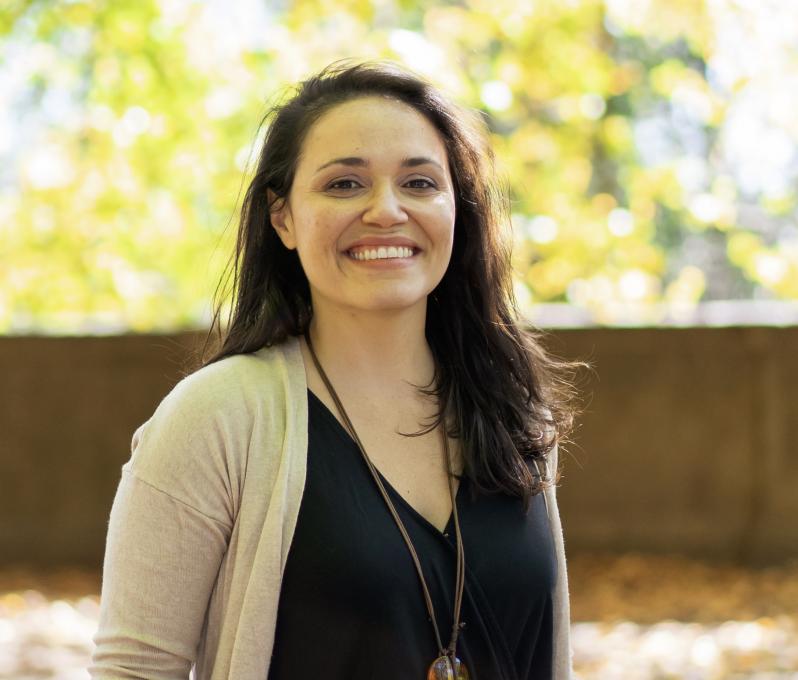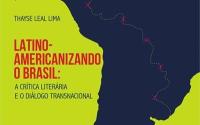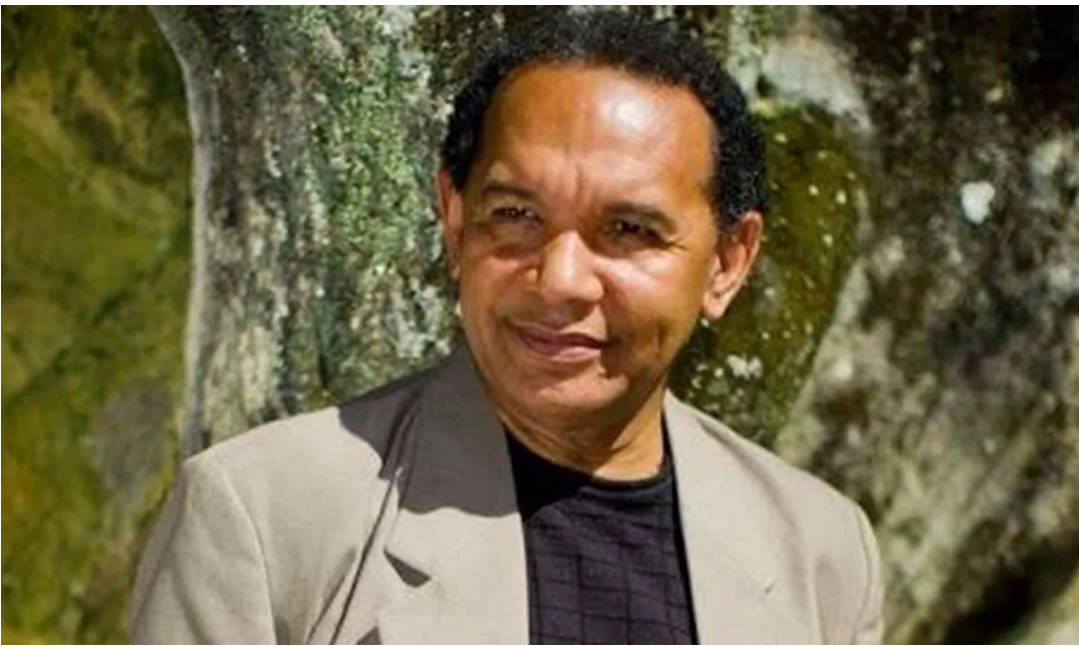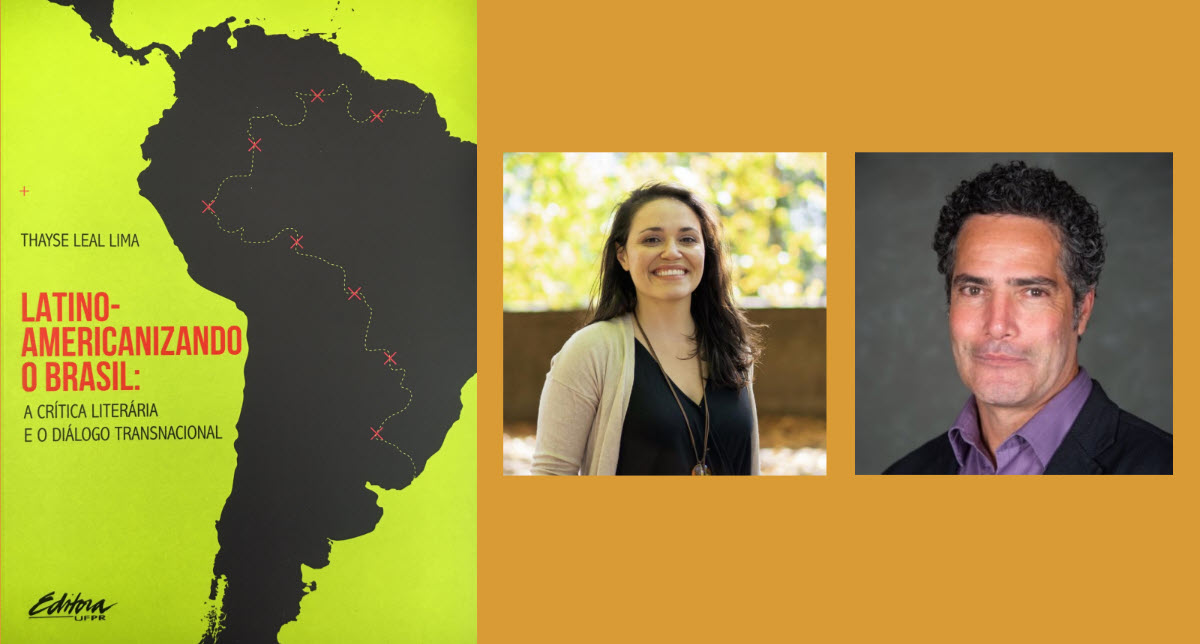Thayse Leal Lima

School of Languages, Literatures, and Cultures
Associate Professor and Advisor, Spanish and Portuguese
Affiliate Faculty, Latin American and Caribbean Studies Center
Equity Partner for Faculty Searches, College of Arts and Humanities
2210 Jiménez Hall
Get Directions
Education
Ph.D., , Brown University
Research Expertise
Brazil
Latin America
Transnational Studies
Dr. Thayse Leal Lima joined the Department of Spanish and Portuguese in 2015. She has been the advisor for the Portuguese Minor Program since 2021 and currently holds the position of Faculty Fellow for Diversity, Equity, and Inclusion at the College of Arts and Humanities. Her expertise spans various fields, encompassing nineteenth-century to contemporary Brazilian literature and culture, Modern Latin American literature, intellectual history, transnationalism, and international literary circulation. Her book Latino Americanizando o Brasil: A crítica Literária e o Diálogo Transnacional [Latin Americanizing Brazil: Literary Criticism and the Transnational Dialogue] was published by Editora UFPR (Federal University of Paraná Press) in 2021. In this work, she traces the efforts of Hispanic American and Brazilian intellectuals in the second half of the twentieth century to bring Brazil more clearly into a Latin American cultural and literary paradigm. Her book sheds new light on the intricate web of transnational exchanges, uncovering their ideological, political, and intellectual underpinning.
Dr. Lima's current research centers on transnationalism and world literature. She has contributed to debates in the field by co-editing a special issue of the Lusophone Studies Journal titled "Thinking World Literature from Lusophone Perspectives," in addition to publishing articles in journals such as Journal of World Literature, Journal of Latin American Cultural Studies, Portuguese Literary and Cultural Studies, amongst others. She is currently co-editing a volume tentatively titled Global Portuguese Literatures in the World. This forthcoming work emphasizes Portuguese language literatures' circulation, exchange, and imaginative world-making.
Publications
Latino Americanizando o Brasil: A crítica Literária e o Diálogo Transnacional
This work explores the integration of Brazil within the Latin American cultural and literary paradigm of the 1960s, 70s and 80s.
Author/Lead: Thayse Leal Lima
This work explores the integration of Brazil within the Latin American cultural and literary paradigm of the 1960s, 70s and 80s. The project centers on the intellectual work of Antonio Candido, Ángel Rama, Emir Rodríguez Monegal e Haroldo de Campos.
Translation and World Literature: The Perspective of the ‘Ex-Centric’
Argues that De Campos’s translation theory of “Trancreation” subverted the hierarchical categories and values that have structured the field of world literature
Author/Lead: Thayse Leal LimaJournal of Latin American Cultural Studies, no. 26, 2017, pp. 461-481
Read More about Translation and World Literature: The Perspective of the ‘Ex-Centric’
South-South Exchanges: Biblioteca Ayacucho and Construction of a Transnational Literature
Addresses circulation and exchange in the Global South by examining the case of Biblioteca Ayacucho (1973), a transnational collection of over 500 books from several Latin American countries.
Author/Lead: Thayse Leal LimaDOI: 10.1163/24056480-20210001
Latin American Dialogues during the Cold War: The magazines Cadernos Brasileiros and Mundo Nuevo
Examines the relationship between the magazines Cadernos Brasileiros (1959 - 1970) and Mundo Nuevo (1967 - 1971) in the 1960s and 70s
Author/Lead: Thayse Leal LimaThis article examines the relationship between the magazines Cadernos Brasileiros (1959 - 1970) and Mundo Nuevo (1967 - 1971) in the 1960s and 70s. It problematizes the processes of South-South exchange by examining the triangulation of Brazilian and Hispanic American cultural relations, which in the case studied, relied on material and logistical support of the United States. If on the one hand the support of the United states undermined the credibility of Latin American cultural magazines, on the other hand, it also opened opportunities for editors, cultural producers, and writers to advance their own agenda of literary internationalization and the cultural integration of Latin America.
Thinking World Literature from Lusophone Perspectives, special issue of Journal of Lusophone Studies, 2021. (accepted)
Latino-Americanizando o Brasil:A Crítica Literária e o Diálogo Transnacional [Latin Americanizing Brazil: Literary Critics and the Transnational Dialogue]
Examines the dialogues and exchanges between Brazilian and Hispanic American literary critics from the 1960s to the 1980s and their efforts to integrate Brazil in the Latin American paradigm.
Author/Lead: Thayse Leal LimaBarcelona: Anthropos, 1994. 463 p. ISBN 84-7658-438-5



